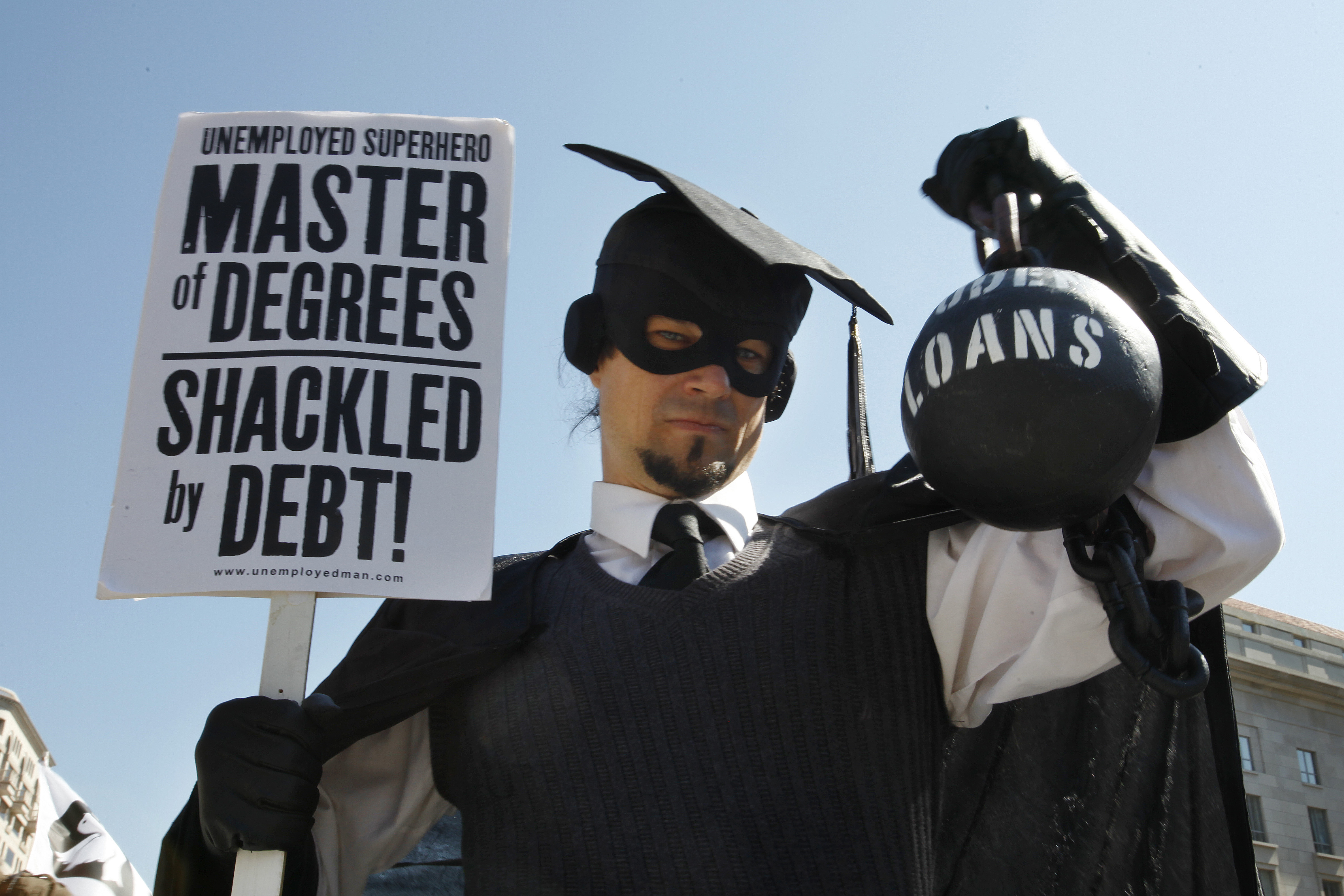
Ballooning student debt has been increasingly compared to subprime mortgages. That helps explain why the U.S. Consumer Financial Protection Bureau just ripped a page out of the crisis playbook and accused loan servicer Navient of cheating borrowers paying for college. Suing just 48 hours before Donald Trump is sworn in as the 45th American president is nevertheless a bold gambit by the same agency that nailed Wells Fargo for opening fake accounts.
Student loans have doubled since 2009 to some $1.4 trillion, raising fears they may pose a systemic risk to the economy. Default rates have come down but remain at very high levels. The percentage of students who couldn’t make payments within three years stood at 11.3 percent last year. Some 43 percent of the 22 million Americans with federal student loans also were delinquent.
The CFPB accuses Navient, the former Sallie Mae operation that services $315 billion worth of loans, of defrauding borrowers by giving them bad information and obscuring their ability to take advantage of federal programs that tie repayments to income. It further alleges that the $4.6 billion company steered struggling customers to seek temporary forbearance rather than federal assistance, causing them to rack up $4 billion in extra interest charges.
Whatever he decides, Trump can’t easily sweep away the student-debt problem. The CFPB is joined in its case by the Illinois attorney general, who is also suing Sallie Mae for alleged predatory practices in originating subprime loans. The growth and affordability of student debt have major consequences for the U.S. economy and the aspirations of Americans, as the founder of Trump University knows all too well. For Cordray, he is clearly fighting as much for his agency as for consumers.







